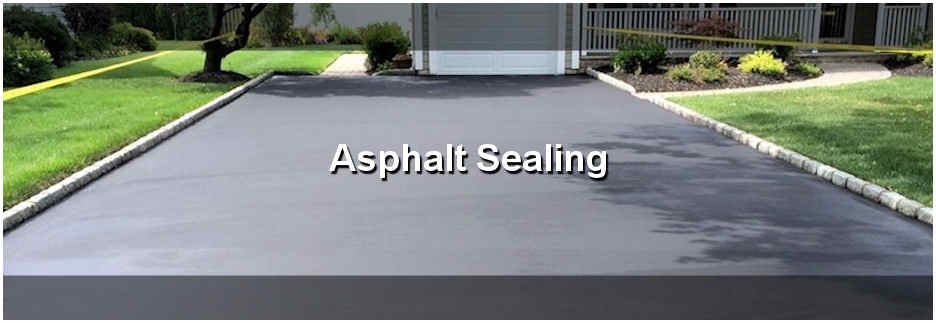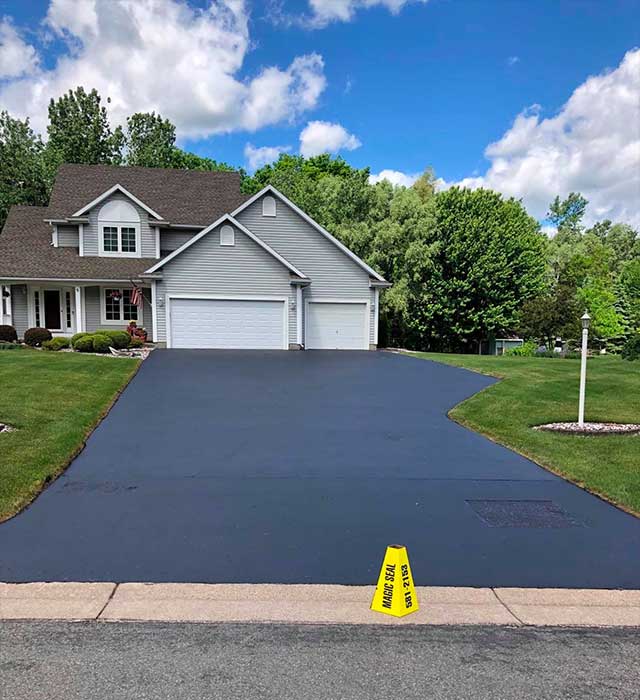Resilient Outcomes: Asphalt Patch Repair With Precision Sealing
Resilient Outcomes: Asphalt Patch Repair With Precision Sealing
Blog Article
Cold Mix Asphalt Vs. Hot Mix Asphalt: Which Is Right for You?

Make-up Differences
Cold mix and warm mix asphalts vary substantially in their make-up, with unique features that impact their performance and applications. Cold mix asphalt is produced by emulsifying the asphalt binder with water and an emulsifying representative before mixing it with accumulation. This approach permits the asphalt to be convenient at reduced temperature levels, making it perfect for momentary repairs and for usage in colder climate conditions. Warm mix asphalt, on the various other hand, is manufactured at high temperatures, normally in between 300-350 ° F, which helps to achieve much better compaction and a more durable end product. The hot mix asphalt production procedure entails heating the accumulation and asphalt binder separately before integrating them at the asphalt plant.
Furthermore, chilly mix asphalt has a tendency to be less dense and extra versatile than hot mix asphalt. This flexibility makes it better suited for locations with higher degrees of activity, such as driveways or roads with rush hour. On the other hand, warm mix asphalt is understood for its high sturdiness and resistance to rutting and splitting, making it a preferred option for highways and high-traffic roadways where longevity is critical.
Installation Process Differences
The process of installing cold mix and hot mix asphalt displays noteworthy variations in their needs and procedures. Cold mix asphalt, being a much more versatile material, can be applied directly from the bag or container onto the split or harmed location. It requires marginal preparation work, such as cleansing the location and compacting the cold mix with hand devices. This makes it a hassle-free alternative for quick and short-lived repairs. On the other hand, hot mix asphalt demands a much more elaborate installment procedure. It includes warming the mixture to high temperatures prior to laying it down on a correctly ready base. The preparation includes compacting the base, applying a tack coat, and utilizing heavy equipment like pavers and compactors for a smooth and resilient finish. Because of the home heating requirements, hot mix asphalt setups are typically executed by specialists with specific equipment, ensuring a More hints more permanent and structurally audio result.
Resilience and Long Life Aspects
When thinking about asphalt alternatives, resilience and longevity are critical factors to evaluate for lasting sidewalk efficiency. Hot mix asphalt (HMA) is known for its remarkable longevity and longevity.
In regards to durability, HMA generally outmatches CMA because of its exceptional toughness and resistance properties. HMA sidewalks have a longer life span, requiring less constant repairs and maintenance, which can convert to cost financial savings in the future. In addition, HMA sidewalks are a lot more easily adjustable to meet certain task demands, further improving their durability.
Expense Considerations
Thinking about the monetary ramifications is an essential aspect when assessing the selection in between warm mix asphalt (HMA) and cool mix asphalt (CMA) for sidewalk jobs. While the preliminary cost of warm mix asphalt is commonly greater than that of chilly mix asphalt, HMA commonly supplies a more affordable service Discover More in the long run due to its superior toughness and durability.
Along with product expenses, it's necessary to take into consideration the expenses connected with setup and upkeep when contrasting HMA and CMA. HMA normally needs specialized tools and skilled labor for correct installment, which can affect overall job expenses. Conversely, CMA is easier to collaborate with and can typically be used making use of easier techniques, possibly lowering setup expenditures. Eventually, the decision in between HMA and CMA ought to consider not simply the first cost however likewise the long-lasting financial implications to establish the most cost-efficient choice for the details sidewalk project.
Environmental Impact Comparison
Contrast of the environmental effects between warm mix asphalt (HMA) and cool mix asphalt (CMA) reveals distinctive differences in sustainability practices. HMA manufacturing needs high temperatures, leading to enhanced power consumption and greenhouse gas discharges.
Moreover, the use of CMA usually involves reusing existing asphalt sidewalk, promoting resource conservation and lowering the amount of waste sent out to land fills. By choosing for CMA over HMA, roadway building and construction jobs can contribute favorably to environmental conservation initiatives.
Verdict
In final thought, the option in between cold mix asphalt (CMA) and warm mix asphalt (HMA) depends on numerous variables such as structure, installment process, durability, longevity, price, and ecological impact. angle parking. While CMA provides a quick and cost-efficient option for small fixings, HMA makes sure exceptional resilience and durability for heavy web traffic areas. Consider these elements thoroughly to figure out which sort of asphalt is the best choice for your paving needs

Thinking about the financial effects is a critical aspect when reviewing the choice in between hot mix asphalt (HMA) and cold mix asphalt (CMA) for sidewalk jobs. While the initial cost of hot mix asphalt is normally higher than that of cold mix asphalt, HMA typically provides a much more cost-effective solution in the lengthy run due to its premium durability and durability. asphalt repair.Comparison of the environmental effects in between hot mix asphalt (HMA) and chilly mix asphalt (CMA) exposes unique distinctions in sustainability techniques.In verdict, the selection in between cold mix asphalt (CMA) and hot mix asphalt (HMA) depends on different aspects such as composition, installment procedure, toughness, long life, expense, and environmental effect
Report this page